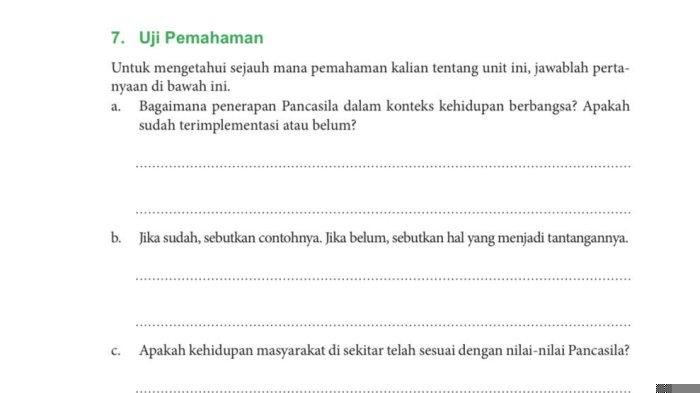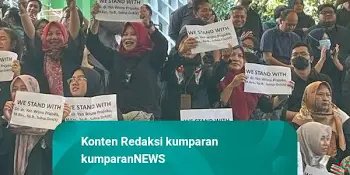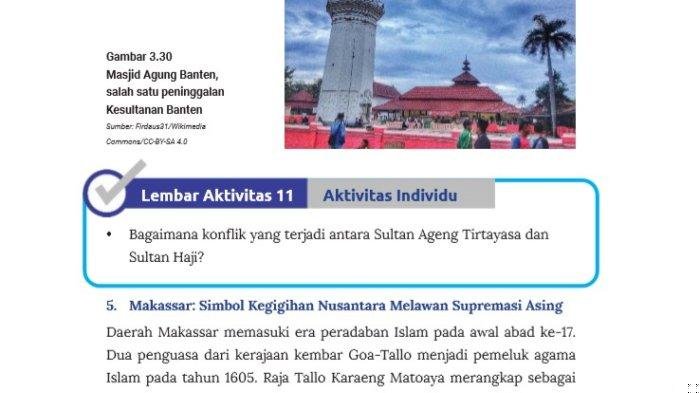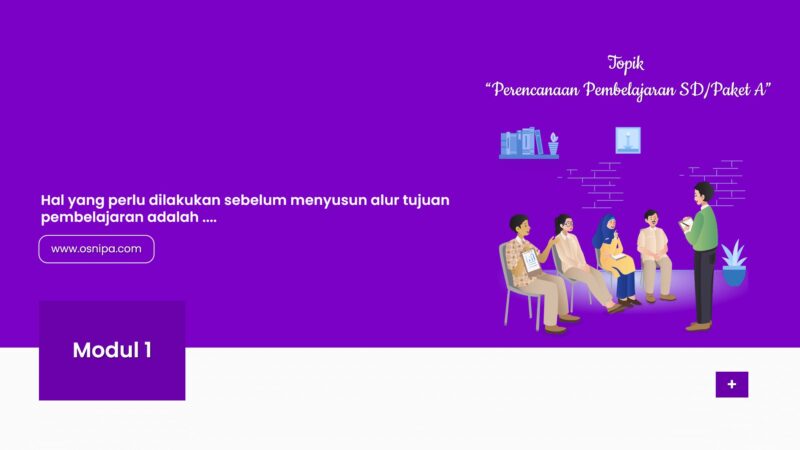Apakah Kehidupan Masyarakat Di Sekitar Telah Sesuai Dengan Nilai-Nilai Pancasila?

In the vibrant tapestry of Indonesian society, the question arises: apakah kehidupan masyarakat di sekitar telah sesuai dengan nilai-nilai pancasila? The essence of Pancasila lies in its call for mutual respect, justice, and unity among diverse communities. As we explore everyday interactions and communal values, we find that varying interpretations of these principles shape our lives.
By examining social behavior, cultural practices, and local governance, we can better understand how these ideals manifest in our society. Are we truly living in alignment with the values Pancasila promotes? Let’s take a closer look at this fundamental inquiry and its implications for our community.
Apakah Kehidupan Masyarakat di Sekitar Telah Sesuai dengan Nilai-Nilai Pancasila?
Pancasila serves as the foundational philosophical theory of Indonesia, representing the nation’s identity and the principles upon which its society is built. It comprises five key values: Belief in One God, Just and Civilized Humanity, the Unity of Indonesia, Democracy Guided by the Inner Wisdom of Deliberation Among Representatives, and Social Justice for All Indonesian People. These values aim to foster a society that is harmonious, equitable, and respectful of diversity. This blog explores whether the lives of the people in Indonesia align with these Pancasila principles.
Understanding Pancasila and Its Societal Implications
Pancasila is not just a historical document but a living guide that influences the daily lives of Indonesians. Understanding its implications can help in assessing whether society reflects its values.
Belief in One God
This value recognizes the importance of spiritual belief and respect for religious diversity. In Indonesia, the population is predominantly Muslim, but there are significant communities of Christians, Hindus, Buddhists, and other faiths.
– **Observations in Society**:
– Places of worship coexist peacefully within communities.
– National holidays recognize various religious events, promoting respect for all beliefs.
However, challenges arise, particularly with incidents of religious intolerance or discrimination. These challenges can detract from the ideal of mutual respect outlined in Pancasila.
Just and Civilized Humanity
This principle emphasizes human dignity and equality. It underlines the need for respect for all individuals, irrespective of their backgrounds.
– **Societal Reflections**:
– Efforts to promote education and healthcare access for marginalized communities reflect this value.
– Initiatives like community outreach programs aim to uplift the quality of life for all citizens.
Despite these efforts, issues such as gender inequality and human rights violations highlight areas for improvement. The discrepancies between ideals and realities prompt critical discussions about how well society embodies this Pancasila principle.
The Unity of Indonesia
Unity in diversity is a crucial theme in Indonesian society, celebrating the multitude of ethnic groups, languages, and cultures.
– **Key Features**:
– National unity is often promoted through cultural festivals that showcase this diversity.
– The government emphasizes national integration in education curricula.
However, regional conflicts and separatist sentiments can threaten this unity. Societal rifts based on ethnicity or religion sometimes challenge the vision of a cohesive national identity.
Democracy Guided by Deliberation
Democracy in Indonesia seeks to represent the voices of its people through elected representatives. The principle of deliberation encourages thoughtful discussion before making decisions.
– **Elections and Political Engagement**:
– Regular elections allow citizens to express their political preferences.
– Community consultations reflect democratic participation in local governance.
Nonetheless, political corruption and a lack of transparency can hinder genuine democratic processes. Many citizens may feel disillusioned, questioning whether their voices truly matter in the political landscape.
Social Justice for All Indonesian People
Social justice is about ensuring that every individual has equal rights and opportunities.
– **Current Initiatives**:
– Social protection programs aim to reduce poverty and provide safety nets.
– Economic policies intend to promote equitable development across regions.
However, disparities in wealth and access to resources still exist. Rural areas often experience underdevelopment compared to urban centers, leading to discussions around economic justice and equity that remain pertinent.
Evaluating Societal Alignment with Pancasila Values
To assess whether Indonesian society truly embraces Pancasila values, we must evaluate various areas of life, including education, governance, and community interactions.
Education as a Reflection of Pancasila
Education plays a vital role in disseminating Pancasila’s values across generations.
– **Promoting Values**:
– Schools frequently incorporate Pancasila into their curricula, teaching students about the importance of these values.
– Character education programs focus on instilling values of tolerance and respect.
Despite these initiatives, the education system faces challenges, including unequal access to quality education. Disparities between urban and rural schools can affect how well students learn and apply Pancasila values in real life.
Governance and Its Relation to Pancasila
The government is charged with upholding Pancasila in its policies and actions.
– **Implementation of Policies**:
– Laws designed to protect minority rights and promote equality reflect a commitment to Pancasila values.
– Local governments that engage with communities seek to embody the principle of deliberation.
When governance fails to reflect these values, discontent can rise among citizens. Issues such as red tape and corruption can undermine faith in the system, prompting calls for reform.
Community Engagement and Interactions
Community life is a rich tapestry representing Pancasila’s values in practice.
– **Positive Interactions**:
– Local organizations often work towards social justice and equality, fostering communal harmony.
– Events celebrating cultural diversity bring people together, reinforcing unity.
However, social tensions can arise, especially in areas with significant cultural differences. Such divisions challenge the ideals of Pancasila, necessitating active efforts to bridge gaps and promote understanding.
Challenges to Upholding Pancasila Values
Despite the positive strides made towards embodying Pancasila values, several challenges must be addressed.
Religious Intolerance
Instances of religious intolerance pose significant challenges. Some groups may face discrimination based on their beliefs, contradicting the core Pancasila value of respect for all religions.
Social and Economic Disparities
Economic inequality hampers the realization of social justice. Urban areas often enjoy more resources and opportunities, while rural populations may struggle to access basic services. This creates a divide that contradicts the unity and justice envisioned in Pancasila.
Political Discontent and Distrust
Political disillusionment affects public participation in democracy. Citizens may feel their opinions are not valued or represented, leading to a gap between the government and its people. This discord can erode trust in the democratic process.
Environmental Concerns
With rapid development, environmental degradation has become a pressing issue. This can disproportionately affect poorer communities, challenging the principles of social justice and the unity of Indonesia. Sustainable practices are essential for ensuring that all people can thrive.
Future Directions for Society in Upholding Pancasila
To align more closely with Pancasila values, society must engage in several key areas for improvement.
Education and Awareness Programs
Enhancing education regarding Pancasila values can empower citizens to uphold these principles in their lives. Educational institutions should focus on:
– Integrating Pancasila into various subjects.
– Encouraging critical thinking about societal issues and values.
– Promoting community service as a practical application of Pancasila.
Strengthening Democratic Processes
To rebuild trust in democracy, efforts must focus on transparency and accountability. Strategies can include:
– Implementing systems that increase governmental accountability.
– Encouraging citizen participation in decision-making processes at all levels.
– Promoting civic education to inform citizens about their rights and responsibilities.
Promoting Economic Equality
Addressing economic disparities is vital for achieving social justice. Possible actions include:
– Investing in rural development programs.
– Creating job opportunities in underdeveloped areas.
– Expanding access to quality education and healthcare for marginalized communities.
Building Interfaith Dialogues
Encouraging interfaith initiatives can foster mutual respect and understanding across different religious groups. Initiatives can include:
– Organizing community events that celebrate various religious practices.
– Establishing interfaith councils to address shared community issues.
– Promoting educational programs that emphasize tolerance and coexistence.
Incorporating Pancasila into the fabric of everyday life ensures that its values resonate with future generations. By actively addressing challenges and striving for improvement, Indonesian society can create a harmonious environment that reflects the essence of Pancasila.
The journey to realizing Pancasila’s ideals is ongoing, requiring collaboration across various sectors of society. It’s crucial for citizens, government, and organizations to reaffirm their commitment to these principles, ensuring that everyone feels valued and included. The strength of Pancasila lies in its ability to unite a diverse nation, forging a common identity rooted in shared values.
Nilai-nilai Pancasila yang Bisa Diterapkan dalam Kehidupan Sehari-hari
Frequently Asked Questions
“`html
How do Pancasila values influence daily interactions among community members?
Pancasila values promote respect, tolerance, and harmony among community members. People often engage in discussions and community activities that reflect mutual respect and understanding. For instance, during communal events, individuals prioritize cooperation and dialogue, which strengthens social bonds and encourages a supportive environment.
In what ways do local leaders embody Pancasila values in their governance?
Local leaders often reflect Pancasila values by prioritizing the welfare of their communities. They ensure that their policies promote justice, equality, and the common good. For example, leaders may implement inclusive programs that cater to various community segments, thereby fostering a sense of unity and collective responsibility.
What role does education play in instilling Pancasila values in the younger generation?
Education plays a crucial role in embedding Pancasila values in young people. Schools incorporate Pancasila teachings into their curricula, emphasizing character development, civic responsibility, and respect for diversity. Through activities like discussions, community service, and cultural events, students learn to appreciate these values, preparing them to contribute positively to society.
How do cultural practices reflect Pancasila values in the community?
Cultural practices often showcase Pancasila values, serving as a medium for expressing unity and diversity. Events like traditional festivals highlight inclusiveness and respect for different cultures and beliefs. Through these practices, community members reinforce the principles of Pancasila, fostering a shared identity and a sense of belonging.
What challenges do communities face in aligning their lives with Pancasila values?
Communities may encounter challenges such as economic disparities, social conflicts, and differing ideologies that can impede the realization of Pancasila values. Conflicts may arise when individuals prioritize personal interests over communal harmony. Addressing these issues requires dialogue, education, and community engagement to reaffirm commitment to Pancasila principles.
“`
Final Thoughts
Kehidupan masyarakat di sekitar kita mencerminkan berbagai tantangan dan kemajuan. Beberapa aspek kehidupan menunjukkan kesesuaian dengan nilai-nilai Pancasila, seperti gotong royong dan toleransi antarwarga. Namun, masih ada area yang perlu ditingkatkan, seperti keadilan sosial dan pemerataan ekonomi.
Apakah kehidupan masyarakat di sekitar telah sesuai dengan nilai-nilai Pancasila? Ini menjadi pertanyaan penting yang memerlukan refleksi dan tindakan dari semua pihak untuk mendorong penerapan nilai-nilai tersebut dalam kehidupan sehari-hari.







